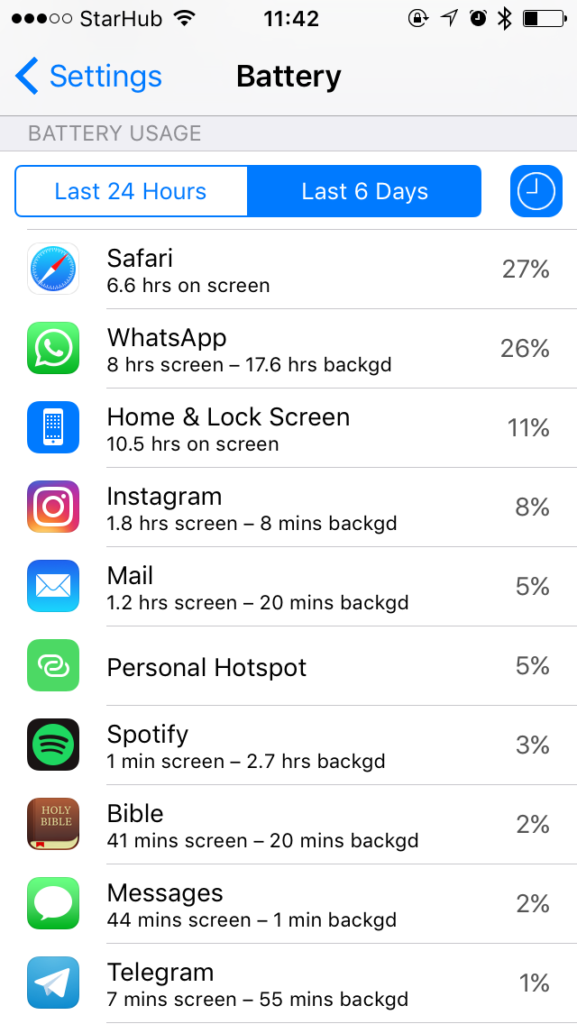“I now see that I spent most of my life in doing neither what I ought nor what I liked.” (C S Lewis, The Screwtape Letters)
I think I spend most of my days wasting my life away with nothingness – hamster-wheeling, basically.
I think about it as I reflect on pastor-writer-preacher John Piper’s generation-defining book, Don’t Waste Your Life.
The origins of the book can be traced to a message he gave at the Passion Conference in the year 2000, where Piper exhorted a generation of young bloods who had just entered an uncertain millennia by emphatically describing what a wasted life looks like for a Christian.
“Bob and Penny took early retirement from their jobs in the North-east five years ago when he was 59 and she was 51. Now they live in Punta Gorda, Florida, where they cruise on their 30-foot trawler, play softball, and collect shells.
“That’s a tragedy,” he told the crowd.
“You stand before the Creator of the universe to give an account with what you did. ‘Here it is, Lord — my shell collection. And I’ve got a good swing. And look at my boat. Look at my boat, God.
Piper is crystal-clear: Only what’s done for Jesus lasts in eternity.
“Don’t waste your life.”
That was in 2010. I’ve come to see recently that a wasted life might look a bit different for today’s youths and young adults.
An article by The Atlantic has recently been making its social media rounds: Have Smartphones Destroyed a Generation. In it, the author details the seeming fatal symptoms thus far exhibited by a generation the he calls the “iGen”.
The author describes iGen as those born between 1995 and 2012, who grew up with smartphones, had an Instagram account before they start high school, and do not remember a time before the Internet. The Millennials grew up with the Web as well, but it wasn’t ever-present in their lives, at hand at all times, day and night.
iGen’s oldest members were early adolescents when the iPhone was introduced, in 2007, and high-school students when the iPad entered the scene, in 2010.
According to the author’s research, today’s teenagers are less likely to date, seek independence from their parents, or head outdoors, among other activities seemingly normal for past-generations. Essentially, their smartphone activity and obsession/addiction has comprehensively moulded every other sphere of their young lives – but they aren’t quite equipped with the maturity and perception to identify this.
I’m convinced that my smartphone usage has significantly influenced my emotional, relational, social, theological and spiritual life in every single dimension.
This phenomenon struck a chord with me because of what I read in another recent book – 12 Ways Your Phone is Changing You, by Tony Reinke, who also writes for the Desiring God website.
(To be honest, I spent a bit over a month reading the book although it’s a pretty short one, because I kept getting distracted by my smartphone. The irony.)
While Reinke is “one of us” in being part of the Facebook, Twitter and the Internet age, he provides an incisive analysis of the smartphone phenomenon and how it’s revolutionised the world – and how it could cripple the future generations of humanity.
This read has encouraged me to review my own phone habits. Doing so has convinced me that my smartphone usage has significantly influenced my emotional, relational, social, theological and spiritual life in every single dimension.
Apart from the two years wasted playing a certain Marvel smartphone game (I’ve stopped!), there’s the endless allure of mindless Twitter, the meaningless scrolling through Facebook feeds, staying connected on WhatsApp chat groups even when in the presence of actual real human beings, the perennial crouching traps of sexual temptations on the internet, and much more.
But really, the biggest impact my smartphone has had on my life is this: It’s numbed me to futility.
It’s numbed me to my daily finding false meaning in nothingness and foolishly seeking illusory fulfillment in mindless Internet shenanigans. Oh, if you could walk a day in the life of my Twitter feed.
This is how much time I’ve spent on various phone applications in the past 7 days:

I’ve spent a little more than half a day (14 hours) out of the past week on my phone either reading or watching videos on Safari, and chatting on WhatsApp! Yes, my Bible app is ranked in the top 10 but only because it spent 20 minutes running unseen in the background.
I will admit with all frankness that my smartphone habits have often fractured my prayer life, or taken my heart and ears away from a conversation or friend. I’ve chosen to focus in an NBA Finals game over an ongoing sermon taking place right in front of me.
But how did I succumb to such habits? How did the central and important things in my life become sidelined, merely optional?
I think these habits were simply groomed over time by smaller choices and smaller habits being cultivated on a daily basis. I had become used to making retrospectively dumb decisions and ignored pertinent matters/persons right in front of me because I had allowed myself to get sucked into a vicious vortex of mindlessness every single day.
And as I became more acclimatised to empty nothingness and brainless scrolling on a consistent basis, the importance of the Gospel reality in my life gradually decreased over time.
Cognitively, I grew more wired to sweep aside pressing issues that required my focus in exchange for whatever greatness I was achieving on my phone. My muscle memory had now reoriented itself to dedicate my mind and heart to my phone. Nothingness: It’s a powerful master.
In his book, Reinke talks about the “nothingness” that flows endlessly out of undisciplined and unfettered smartphone usage:
“What I am coming to understand is that this impulse to pull the lever of a random slot machine of viral content is the age-old tactic of Satan. C S Lewis called it the ‘Nothing’ strategy in his Screwtape Letters.
“It is the strategy that eventually leaves a man at the end of his life looking back in lament: ‘I now see that I spent most of my life in doing neither what I ought nor what I liked.’
“This ‘Nothing’ strategy is very strong: Strong enough to steal away a man’s best years, not in sweet sins, but in a dreary flickering of the mind over it knows not what and knows not why, in the gratification of curiosities so feeble that the man is only half aware of them.
“Routines of nothingness. Habits unnecessary to our calling. A hamster wheel of what will never satisfy our souls.
“Lewis’ warning about the ‘dreary flickering’ in front of our eyes is a loud prophetic alarm to the digital age. We are always busy, but always distracted – diabolically lured away from what is truly essential and truly gratifying. Led by our unchecked digital appetites, we manage to transgress both commands that promise to bring focus to our lives.
“We fail to enjoy God. We fail to love our neighbour.”
Echoes of Piper with the same warning reverberating here: That’s a tragedy.
Don’t give in to nothingness. Persist with self-examination of how your phone is shaping you, affecting your relationship with Christ, and dictating the way you live in light of eternity. Or, as they say these days: Stay woke.
How are you wasting your life today?
This article was adapted from Danny Chua’s original blogpost.









